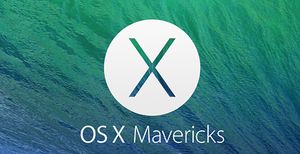Microsoft is ending support for Windows XP on April 8th, 2014 after 12 years, which I know because I occasionally run a virtual copy of XP on my Mac.
Twelve years ago (2002), Microsoft completely owned the desktop operating systems market, with 93+% market share. Mac OS had 2.9% and LINUX 2.3%. Their market muscle let them push customers around a lot:
- Internet Explorer was the default browser with no way to set another browser as default (until SP1, thank you, DOJ). Microsoft-proprietary HTML extensions forced website designers to do double work for Netscape and IE.
- Heavy ecosystem support for other Microsoft pseudo-standards such as .NET
- Hard-to-avoid system updates that many of us expected would brick our laptops or break previously working apps, after an hour of watching the hourglass
- Lack of calendar/email/address book interoperability and openness that were clearly designed to lock users into an all-Microsoft solution
- Frustrating Wi-Fi configurations and lack of troubleshooting tools
- Slow and persnickety backup and disk cleanup utilities
And so on. That was roughly when I moved back to a friendlier, humbler and more open MacOS.
We’re a mostly Apple household (5 Macs, 3 iPads, 2 iPhones plus a few Kindles, an Android phablet or two, and aging virtual copy of Windows XP) but the bloom is mostly off this rose. Lately, it feels like Apple is pushing software for its own strategic advantage rather than with us users in mind. What a different a decade makes.
- OS X 10.9 (aka Mavericks) removed local synchronization of contacts between Macs and iPhones, in favor of iCloud. Their cloud strategy must be more important than preserving long-standing features.
- I use Google for email and online calendar, and 10.9 forced me to move my contacts to Google. (See above.) This puts me in the middle of the Google-Apple semi-compatibility scuffle. Every MacOS update seems to re-break some fragile part of this open, standards-based world of calendars and contacts. 30 years into the PC revolution, and the big kids still won’t play nicely together. Or do adequate QA on a typical configuration.
- 10.9 also disabled WiFi on my 27″ iMac, although assorted other Macs on the same desk with identical software/configurations work fine. It’s too big to lug into the store, so thank God 3COM for Ethernet. A few hours of random third party advice on Apple support forums helped not at all.
- I delayed as long as I could, but eventually had to update my laptop to 10.9 Happily, after an hour of updates and spinning color wheels, it booted and still works. Sigh of relief.
- Recent tweaks to Time Machine seem to slow down backups and hide progress info…
So it goes. Maybe my Apple fan boy days are over, and it’s time for my next decade-long dalliance with a friendlier, humbler OS.

